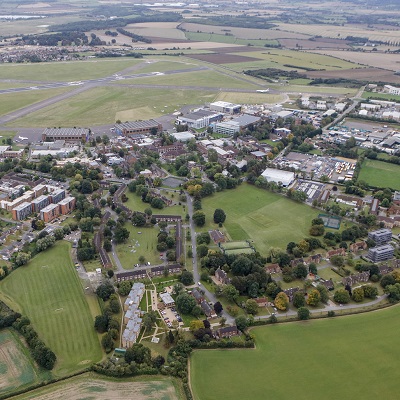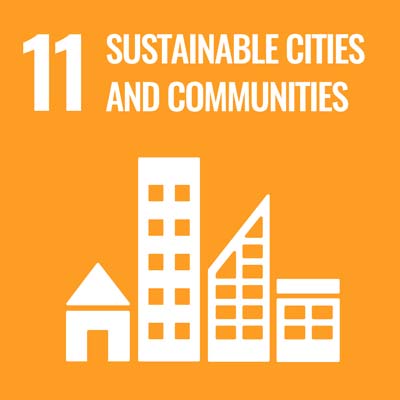Overview
- Start dateOctober
- DurationOne year full-time
- DeliveryTaught modules 50%, Group project 10%, Individual research project 40%
- QualificationMSc
- Study typeFull-time
- CampusCranfield campus
Who is it for?
The Air Transport Management MSc is suitable for students from a range of academic backgrounds, including aeronautical engineering, economics, business studies, history and geography, or those with demonstrable experience in the air transport industry. Students are typically keen to pursue employment within the air transport sector.
We also cater for professionals looking to enhance their career. Please explore the part-time, Executive Air Transport Management MSc option.
Why this course?
The MSc Air Transport Management was established in 1964 and has an outstanding global reputation with over 1,500 graduates to date. The course covers a wide area of expertise related to air transport management, while enabling you to specialise in a selection of subject areas. This flexibility means that you can tailor the course to your particular interests and aspirations.
The course aims to provide you with a thorough grounding in all key air transport management issues and debates, as well as develop your managerial, interpersonal, financial, project management, team building and analytical skills. To build the management and leadership skills required to contribute to a more sustainable industry future, you will be called upon to locate, carefully consider and provide recommended solutions to a host of contemporary challenges. People skills remain central to our MSc course, including the connections you make at Cranfield University which endure well beyond graduation.
Graduates of this course are featured in our annual CV Book, a publication which is requested by and circulated to our extensive industry partner network, as our graduates are highly sought after. We help students write their CVs and prepare for interviews for positions all over the world. In addition, we give students access to our exclusive Air Transport Alumni group on LinkedIn. This offers unrivalled networking and job opportunities.
Cranfield University is very well located for students from all over the world, and offers a range of library and support facilities to support your studies. This MSc programme benefits from having students from a wide range of cultural and national backgrounds, which significantly enhances the learning experience for both staff and students.
Discover the range of unique facilities available to you as a student on this course.
Informed by Industry
The course is informed by industrial advisors from leading companies in the air transport industry. The group meets annually and ensures that the course content remains up-to-date and equips students with the skills and knowledge required by leading employers. Members of the committee attend the group project presentations and are actively involved in recruiting our graduates.
Companies we work or have worked with include:
| British Airways |
| Virgin Atlantic |
| Heathrow Airport |
| Luton Airport |
| Etihad Airways |
| Boeing |
| Vueling |
| Regional and City Airports |
Course details
The taught programme for the Air Transport Management MSc is generally delivered from October to March and is comprised of nine compulsory modules and one module from the choice of optional modules. Many of the lecture modules include case study project sessions and seminars may also be led by senior visitors from industry.
Students also receive a subscription to industry database OAG Schedules.
Course delivery
Taught modules 50%, Group project 10%, Individual research project 40%
Group project
The group project undertaken in April, aims to provide a simulated industrial environment where knowledge and skills gained from the taught component can be applied to solving an air transport management problem.
Students are divided into groups and tasked with setting up an airline in any country of the group's choice. Students can also choose any type of airline business model. The group present and defend their business plans to a board of senior industry executives as well as to the faculty. Each group must also submit a detailed report which will be assessed.
Individual project
The individual research project is an opportunity to study a current problem and allows students to choose a subject of interest to explore in detail. Students can undertake independent research on a subject relevant to technical, operational or commercial aspects of the air transport or related industries, including a review of relevant literature, methodological planning, data collection, analysis, presentation of results, and evaluation and discussion of these results.
Previous projects have included:
- The Impacts of Airline Liberalisation
- Successes of Airline Business Models
- Applications in Airline Marketing
- The Benefits of Airport Privatisation
- Low-Cost Airline Expansion throughout Europe
- The Future of In-flight Entertainment
- Airline Alliances
- The Impact of Globalisation on Aircraft Manufacturers.
Modules
Keeping our courses up-to-date and current requires constant innovation and change. The modules we offer reflect the needs of business and industry and the research interests of our staff and, as a result, may change or be withdrawn due to research developments, legislation changes or for a variety of other reasons. Changes may also be designed to improve the student learning experience or to respond to feedback from students, external examiners, accreditation bodies and industrial advisory panels.
To give you a taster, we have listed the compulsory and elective (where applicable) modules which are currently affiliated with this course. All modules are indicative only, and may be subject to change for your year of entry.
Course modules
Compulsory modules
All the modules in the following list need to be taken as part of this course.
Introduction to the Air Transport Industry
| Aim |
|
|---|---|
| Syllabus |
|
| Intended learning outcomes |
On successful completion of this module you will be able to:
|
Air Transport Economics and Finance
| Aim |
|
|---|---|
| Syllabus |
|
| Intended learning outcomes |
On successful completion of this module you will be able to:
|
Geopolitics and International Aviation Law
| Aim |
|
|---|---|
| Syllabus |
|
| Intended learning outcomes |
On successful completion of this module you will be able to:
|
Air Transport Market Analysis and Forecasting
| Aim |
|
|---|---|
| Syllabus |
• Air travel demand • Market analysis • Trend analysis • Time series analysis • Market share forecasts • Long term forecasts • Econometric modelling • Evaluating forecasting results |
| Intended learning outcomes |
On successful completion of this module a student should be able to: 1. Appraise key factors affecting demand for air travel. 2. Analyse data and select the most appropriate model to produce a traffic forecast. 3. Evaluate forecasting methods and interpret the results with confidence. 4. Appraise and critique the work of other practitioners and specialists. 5. Communicate effectively, in written form, the research work produced. |
Air Transport Operations
| Aim |
To provide students with knowledge, skills and understanding in the theory and applications of aircraft and airline operations, engineering and maintenance to appreciate the impacts these have on the commercial activities of operators. |
|---|---|
| Syllabus |
|
| Intended learning outcomes |
On successful completion of this module a student should be able to:
|
Air Transport Environmental Planning
| Aim |
|
|---|---|
| Syllabus |
|
| Intended learning outcomes |
On successful completion of this module a student should be able to: 1. Demonstrate an appreciation of the key features and characteristics of the environmental externalities of air transport at varying spatial scales. 2. Critically analyse the various technical, commercial, economic and political dimensions of environmental impact mitigation. 3. Identify current and future environmental policy and regulatory controls on the air transport industry and assess trade-offs between competing priorities. 4. Apply different techniques for measuring and calculating the environmental impacts of air transport. 5. Develop and communicate an environmental strategic plan for air transport. |
Air Transport Strategic and Marketing Management
| Aim |
To assist air transport managers to formulate and implement strategies in order to create sustained competitive advantage. To provide a sound comprehension of how marketing concepts and theories can be applied to the air transport industry, considering its unique nature. |
|---|---|
| Syllabus |
Introduction to strategic air transport management |
| Intended learning outcomes |
On successful completion of this module you will be able to:
|
Elective modules
One of the modules from the following list need to be taken as part of this course
Aviation Safety Management
| Aim |
|
|---|---|
| Syllabus |
|
| Intended learning outcomes |
On successful completion of this module you will be able to:
|
Air Transport Engineering - Maintenance Operations
| Aim |
|
|---|---|
| Syllabus |
• Optimisation of maintenance - Outsourcing/In House Maintenance; Application of Lean principles to Maintenance operations; Maintenance planning; Maintenance costs. • Human Factors in Aircraft Maintenance - Error types; Classification systems; Maintenance Error Management System; Maintenance Error Decision Aid (MEDA) & other resources. • Logistics and supply chain management. • Linkages between manufacturer, operator and maintenance organisation. • Continuing airworthiness management and Regulatory aspects (EASA Part M). • Health and usage monitoring, engine condition monitoring etc. |
| Intended learning outcomes |
On successful completion of this module you will be able to: 1. Describe the principles of reliability with direct relation to aircraft availability. 2. Outline a maintenance management programme, including the interface with operations, supply chain and cost issues. 3. Critically appraise the various aircraft maintenance philosophies used for in-service aircraft. 4. Develop a process for achieving continuing airworthiness management with the appropriate regulatory approval. |
Airline Fleet Planning
| Aim |
|
|---|---|
| Syllabus |
|
| Intended learning outcomes |
On successful completion of this module you will be able to:
|
Air Transport Marketing
| Aim |
To provide a sound comprehension of the how marketing concepts and theories can be applied to the airline industry, considering its unique nature. |
|---|---|
| Syllabus |
|
| Intended learning outcomes |
On successful completion of this module you will be able to:
|
Airport Strategic Planning
| Aim |
To ensure that upon completion of the module, you will have acquired the required level of knowledge and skills to successfully tackle real-world airport strategic planning problems. |
|---|---|
| Syllabus |
|
| Intended learning outcomes |
On successful completion of this module a student should be able to: 1. Demonstrate a clear understanding of the process of airport capacity planning within the context of changing airline industry structure, national airport policy goals and planning constraints; 2. Identify the key components involved in approving airport development projects and be able to appraise the arguments for and against expansion; 3. Compare, analyse and assess different location options for new airports and understanding the interaction of key variables in the decision-making process; 4. Collect information from a variety of electronic (internet) and hard copy sources to support research; 5. Appraise and critique the work of other practitioners and specialists, communicate effectively, in written form, research work produced, and complete coursework to set deadlines. |
Digital Airline Management
| Aim |
|
|---|---|
| Syllabus |
Developments of IT within the airline sector (e.g. blockchain) |
| Intended learning outcomes |
On successful completion of this module you will be able to:
|
Regional Aviation
| Aim |
|
|---|---|
| Syllabus |
• Regional airline strategy • Regional airline network planning • Regional aircraft performance and economics • Regional airline fleet planning • Management of regional airports and ATC • Subsidies, public service obligations, and other support mechanisms • Case studies and practitioner visiting online lectures |
| Intended learning outcomes |
On successful completion of this module you will be able to: 1. Discuss the key economic and business features that are common to regional airlines and evaluate how these differ from other airline business models. 2. Critically analyse and appraise business problems relating to regional airline strategy and network planning. 3. Critically evaluate the performance characteristics of regional aircraft in the context of regional airline fleet planning and the implications on business performance. 4. Critically evaluate the common economic and business challenges faced by airports and providers of ATC in regional markets. 5. Critically analyse and appraise policy challenges relating to the use of essential air service support mechanisms that are often applied to remote / peripheral regional markets. |
Teaching team
You will be taught by the largest academic group in the world specialising in air transport management. This multidisciplinary group includes a unique blend of air transport economists, marketing specialists and aeronautical engineers with strong publication records and industry experience.
Your career
Many of our former graduates now occupy senior positions within the air transport industry. The Centre for Air Transport Management has close links with companies and organisations in the industry who consider our centre a valuable source of potential recruits.
Former students have taken up employment in a variety of positions in a wide range of organisations. Some of the main recruiting areas in recent years have included:
| Airlines |
| Aerospace manufacturers |
| Airport operators |
| Aircraft maintenance |
| Integrators |
| Consultancy firms |
| Aviation insurance and finance |
| Aviation journalism |
Companies that employ our graduates include:
| Qatar Airways/Cargo Company | Wizz Air |
| British Airway/IAG Cargo Company | easyJet |
| AerCap | Air France-KLM |
| BAE Systems | Boeing |
| Changi Airports Group | Dubai Airports |
| Etihad Airways | GE Aviation |
| Lufthansa Group | TUI |
| Vietnam Airlines |
Cranfield’s Career Service is dedicated to helping you meet your career aspirations. You will have access to career coaching and advice, CV development, interview practice, access to hundreds of available jobs via our Symplicity platform and opportunities to meet recruiting employers at our careers fairs. Our strong reputation and links with potential employers provide you with outstanding opportunities to secure interesting jobs and develop successful careers. Support continues after graduation and as a Cranfield alumnus, you have free life-long access to a range of career resources to help you continue your education and enhance your career.
How to apply
Click on the ‘Apply now’ button below to start your online application.
See our Application guide for information on our application process and entry requirements.
I chose Air Transport Management MSc because I have extensive work experience in the air transport industry. Cranfield University has the most comprehensive course content and is well known as the best institution for any aviation-related study. A highlight from my time at Cranfield would definitely have to be the courses, guest lecturers and assignments were practical and current. Our Group Project was to develop a business plan for a new start-up airline, for a home base country and airport. We chose Columbia as our home country; Cali airport city and we named our airline CALIGO. My Individual Research Project was about Perceptions and benefits of nationality branding compared with nationality neutral branding in the international air transport industry. My plans now I have finished my MSc are to seek employment and growth in the area of business analysis, strategy and insight analysis in an airline or consulting firm.
A highlight from my time studying at Cranfield University would have to be the excellent lecturers and my classmates. Now that I have finished my MSc I am hoping to work for an airline in an inflight catering position in UK, Middle East or Singapore. My group project focused on an Airline start-up proposal focusing on an emerging market, Bangkok in Thailand, as the home base. For my Individual Thesis Project I worked on a meal production forecasting model for Cathay Pacific Airways ex-Hong Kong flights.
In 1983, I graduated from the Foreign Trade University and then joined Vietnam Air Traffic Management Corporation, Civil Aviation Administration of Vietnam, as Coordination Controller. Seven years later, I started working at Vietnam Airlines.
I had ten years of experience in the aviation industry before I decided to obtain a higher educational level and earned an MSc degree in Air Transport Management at Cranfield University in 1994. As an exclusively postgraduate university in the UK and one of the top universities in the world, Cranfield University maintains its top position in many programme-specific rankings.
I am grateful for the many advantages this degree has provided. It's the ideal place to get started on an enjoyable and rewarding career in aviation.
The UK is a highly diverse and successful society and therefore offers international students an academic experience that is very hard to beat. Living in the UK was a life-changing experience for me. I was very fascinated by the innovative teaching methods and leading minds who deliver them.
I have served in a variety of positions at Vietnam Airlines, including General Manager of Southern Branch in 2004, Vice President in 2008, and now as the President and CEO since 2016. I’m determined to make Vietnam Airlines one of the leading carriers in the region, providing the highest level of safety and service quality.
The degree gave me an insight into many unique areas of this complex industry, brought by dedicated staff and a curriculum that prepared me for the demands of an aviation career, with the training required to be successful.
The Air Transport Management MSc helped me to develop in-depth knowledge and understanding of the structure and operation of the air transport industry from an international perspective. I am happy that I had a chance to grow personally and professionally.





















